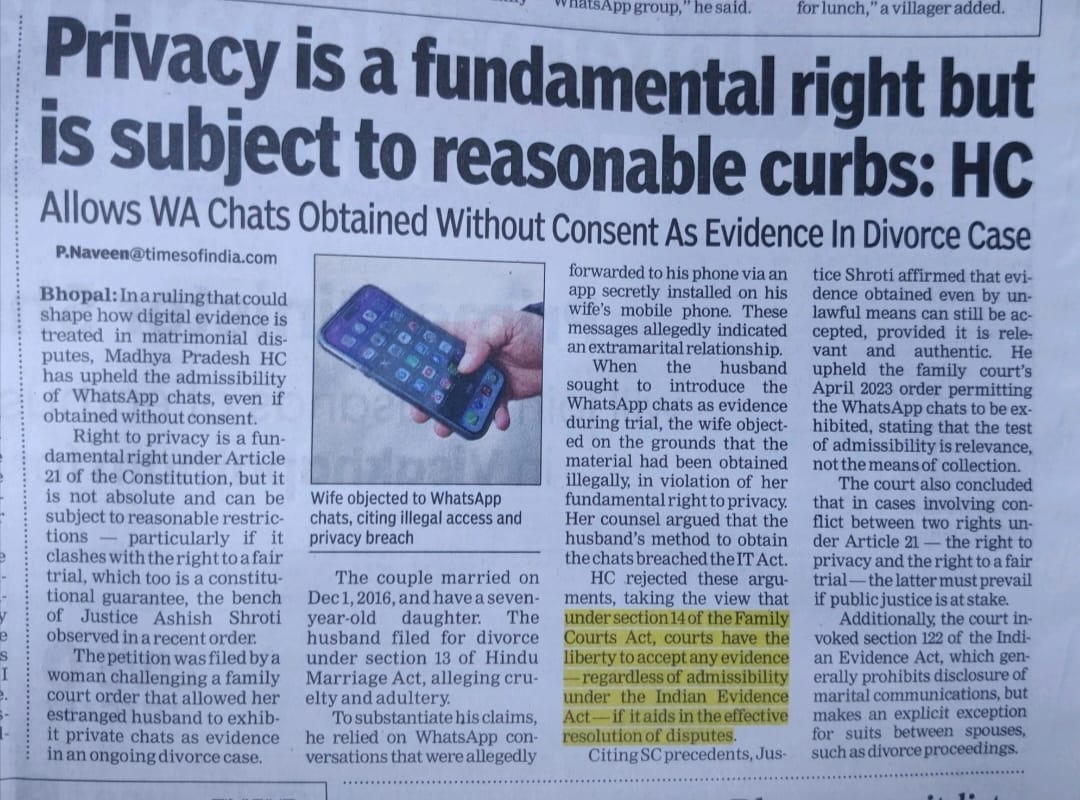
Under the Indian Evidence Act, 1872 (amended for electronic evidence), especially after the introduction of Section 65A and 65B, WhatsApp chats are considered electronic records, and can be admissible as secondary evidence, if the following criteria are met:
🔷 1. Authenticity and Relevance
The chats must be genuine, not tampered with or altered.
They must be relevant to the facts of the case.
Even if the other party does not consent, if the chat is relevant and material, courts may admit it.
🔷 2. Section 65B Certificate (Mandatory)
Under Section 65B(4):
A certificate of authenticity from the person who extracted or printed the chats is needed. This certificate confirms that the electronic device (mobile or server) was used regularly and that the data was not tampered with.
Without this certificate, the chats may not be admissible unless an exception is granted by the court (as seen in some recent judgments).
🔷 3. Supreme Court Stand
In Arjun Panditrao Khotkar v. Kailash Kushanrao Gorantyal (2020):
The Supreme Court held that electronic evidence without a 65B certificate is inadmissible, unless the original device is produced.
However, if the original mobile phone is submitted, the chat can be admitted even without consent from the sender or recipient.
🔷 4. Privacy vs. Public Interest
Courts may override privacy concerns:
In criminal matters, courts prioritize truth and justice over individual consent.
For example, chats obtained by police or via forensic tools are admissible if relevant to the investigation.
🔷 5. Obtained Legally
If the chats are obtained illegally or by hacking, their admissibility might be challenged.
However, even such evidence can be accepted in public interest, especially in criminal cases (see: Pooran Mal v. Director of Inspection, SC)
Key takeaway for legal professionals:
When advising clients in litigation involving electronic communications or personal data, be mindful that Indian courts may prioritize judicial truth over procedural purity.